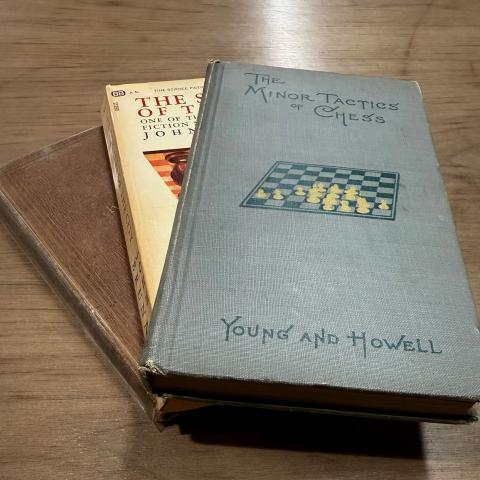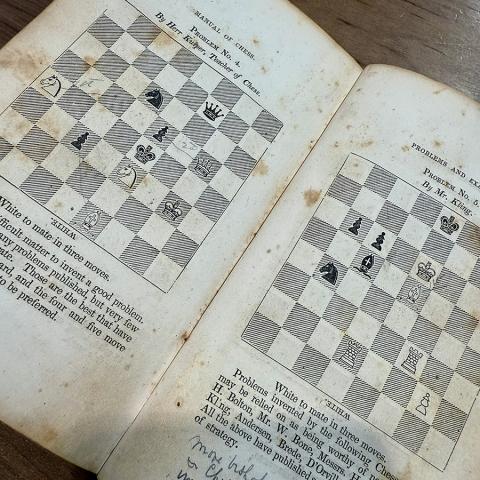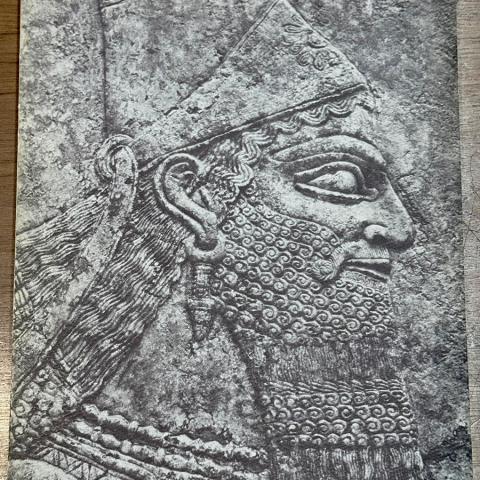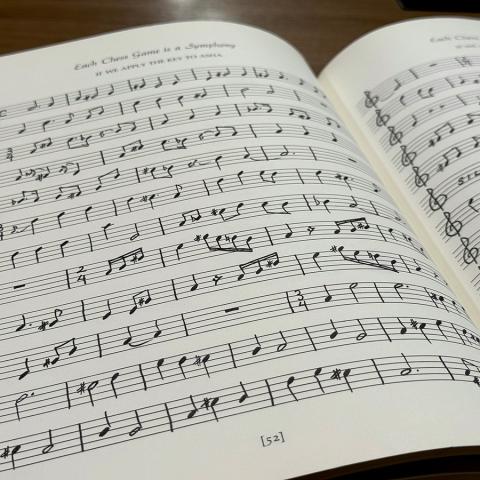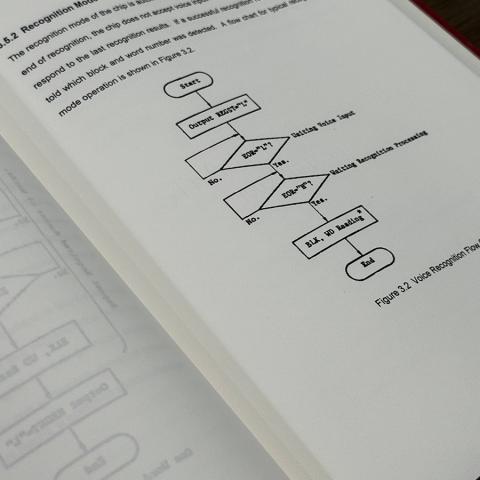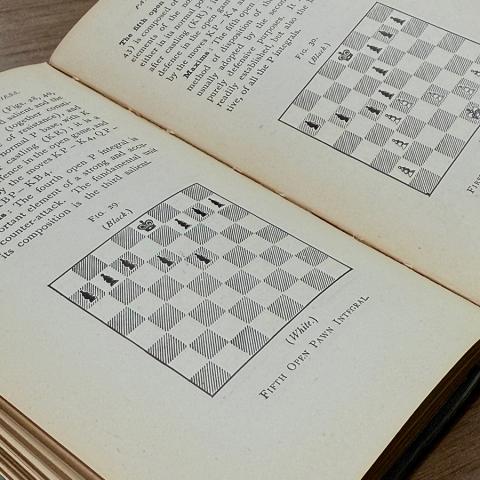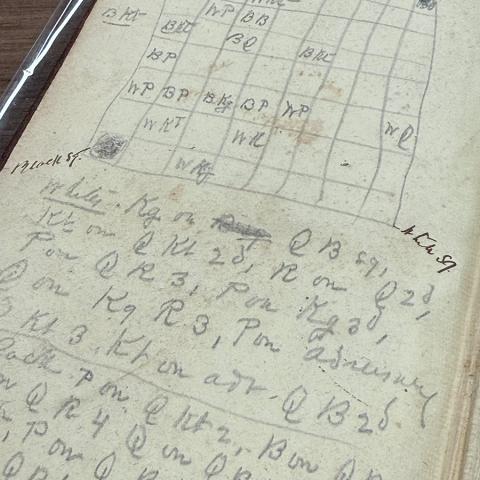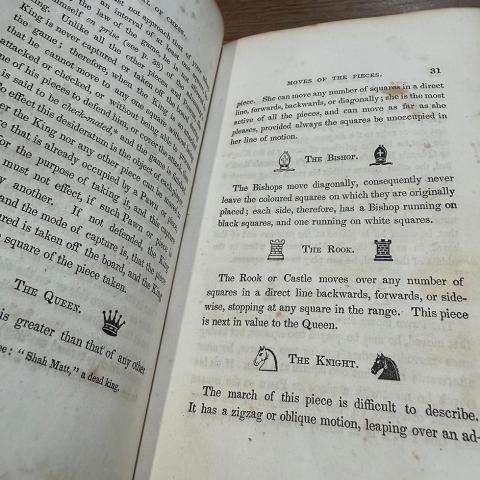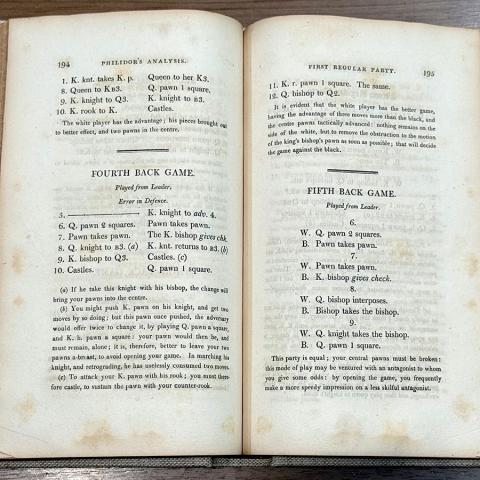Chess in the Archives
by Varad Sahasrabudhe, an undergraduate studying Jazz Performance (Guitar) - April 22, 2025
Chess has traditionally been regarded as a game of skill, strategy, and intelligence. It's a mental workout that tests players' ability to think critically, formulate plans, and solve challenging problems; it's more than just a hobby. The history and influence of chess, one of the oldest games in the world, go much beyond the chessboard. Chess continues to inspire and captivate people from all walks of life because of its profound philosophical foundations as well as its impact on literary and political situations. If you're interested in the history of chess or are a chess aficionado, Special Collections & Archives is the location to visit. Numerous books, journals, and dissertations that explore the game's history, tactics, and even cultural importance can be found in the archives.
The book Studies of Chess by A.D. Philidor is essential reading for anyone wishing to learn the fundamentals of chess. This book, which was written by a French composer and chess player, provides an overview of the game as well as puzzles and diagrams that let readers practice their skills and discover the fundamentals of the game. Many of the chess strategies and tactics still in use today have their roots in Philidor's work.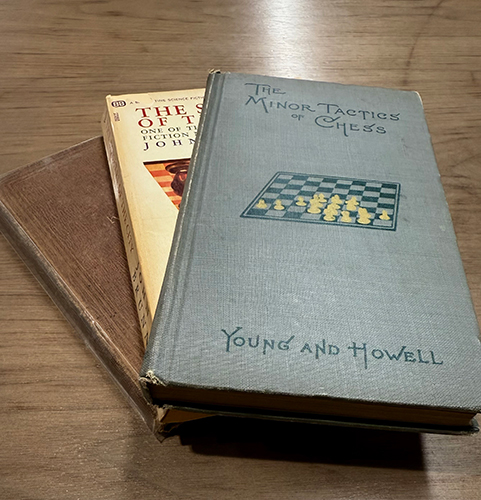
The Manual of Chess: Containing Elementary Principles of the Game offers a succinct synopsis of chess literature, outlining the fundamental tactics, opening moves, and components of the game. A comprehensive list of chess journals that summarize real-world game situations and endgames is also included. These resources are invaluable to both beginners and seasoned players, offering insights into the evolving game.
Beyond the board, chess has an impact on a number of disciplines, including politics, literature, and philosophy. One such instance is John Brunner's science fiction book The Squares of the City, which combines chess strategy with political intrigue. Brunner's story, which is set in a near-future planet, translates the moves from a famous chess match between two legends, Wilhelm Steinitz and Mikhail Chigorin, from 1892 onto a convoluted plot full of tension and political scheming. The way that chess has been utilized as a metaphor for more extensive systems of power and strategy is evident in Brunner's work. The game's slow pacing and careful design have made it a suitable storytelling framework, representing the complex and frequently erratic dynamics of human civilization.
Similarly, Edmond Bordeaux Szekely's The Art of Asha: Journey to the Cosmic Ocean delves into the metaphysical roots of chess. This book, which has its roots in the Persian myth of the game's origins, explores the history of chess in ancient Persia and provides a more profound, philosophical interpretation of its importance. This book offers an intriguing examination of the game's more extensive cultural and spiritual aspects for those who are interested in the relationship between mythology and chess.
Some chess books explore the complexities of the middle and end phases of the game, while many concentrate on opening moves. The middle stage, in which players hone their position and piece structure, is the focus of The Minor Tactics of Chess. Texts like these are more than just introductions; they teach players how to utilize strategy and reasoning to improve their game over time. This publication provide priceless insights into positioning, piece coordination, and general game flow, regardless of your level of experience.
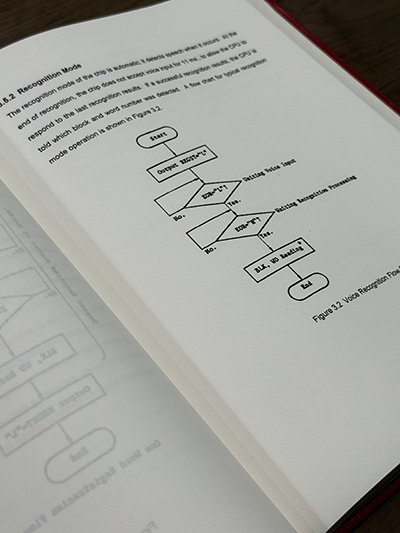 A master's student at CSUN wrote a dissertation that examines a voice-controlled chess clock, which is one of the most contemporary approaches to the game. By replacing antiquated mechanical chess clocks, this inventive gadget aims to improve Blitz chess gameplay with smooth operation. The advent of these devices highlights how innovation continues to influence how we play and enjoy the game of chess as it develops in the digital age.
A master's student at CSUN wrote a dissertation that examines a voice-controlled chess clock, which is one of the most contemporary approaches to the game. By replacing antiquated mechanical chess clocks, this inventive gadget aims to improve Blitz chess gameplay with smooth operation. The advent of these devices highlights how innovation continues to influence how we play and enjoy the game of chess as it develops in the digital age.
Chess is more than just a recreational activity; it is an intellectual and cultural mainstay. Through philosophical investigations, historical writings, or innovative inventions, the game has permanently impacted human civilization and thought. Players and academics alike can uncover new facets of the game and unlock centuries of strategy, history, and wisdom by exploring these resources and more in Special Collections & Archives.
Like any great intellectual activity, chess has changed over time, but its capacity to promote strategic planning and critical thinking has not. There is always something new to discover about chess, its history, and its significant influence on our world, regardless of whether you are an aspiring grandmaster or simply someone who enjoys the game's rich past.
Image Gallery
Post tagged as: special collections, rare books, international
Read more Peek in the Stacks blog entries